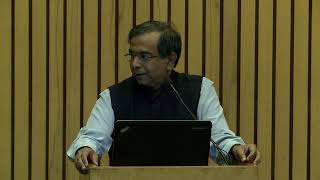Political Violence in Ancient India
Ramji Thakkar, Bhimji Thakkar (70 min; dvd; 2016; Gujarati/English & with subtitles)
Carnatic Music – Homage to the Mridangam Trinity of the Past
Carnatic Music – Homage to the Mridangam Trinity of the Past
Shri Palghat Manu Iyer, Shri Pazhani Subramaniam Pillai and Shri Ramanathapuram C.S. Murugabhoopathy
Percussion ensemble by Kumbakonam N. Padmanabhan and his disciples
Supported by Delhi R. Sridhar and his disciples on violin
Auroville: A City of the Future
Speakers: Shakti Maira and Ameeta Mehra
In Search of Ephrem the Syrian: Suriani and the Materiality of Faith
Mehfil
GST, Demonetisation and the Construction Industry
GST, Demonetisation and the Construction Industry
Lead Speaker: Dr. Arun Kumar, Malcolm S. Adiseshiah, Chair Professor, Institute of Social Sciences who will make a presentation on “Demonetisation and its Impact on Parallel Economy, Real Estate and Construction Sector”
Followed by a panel discussion
Panelists: Dr. Arun Kumar, Malcolm S. Adiseshiah, Chair Professor, Institute of Social Sciences; Prof. Jagan Shah, Director, National Institute of Urban Affairs; Shri Dinesh Verma, Partner, SARC & Associates; Ms Anjali Sharma, Shriram Finance (tbc); and Shri Rohit Raj Modi, Director, Ashiana Homes Pvt. Ltd.
Chair: Prof. Sunil Agarwal, Associate Dean and Director, RICS SBE










